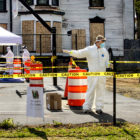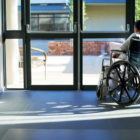Connecticut Acts To Help Its Lead-Poisoned Children
|
After decades of inertia, Connecticut is finally moving to help its thousands of lead-poisoned children and prevent thousands of other young children from being damaged by the widespread neurotoxin. The state will direct most of its efforts — and most of $30 million in federal money — toward its cities, whose children have borne the brunt of this epidemic. In announcing the allocation recently, Gov. Ned Lamont pointed to lead’s “catastrophic” effects on children’s health and development, noting that lead poisoning is “a problem that impacts most deeply minority and disadvantaged communities of our state.” Nearly half of the 1,024 children reported as lead poisoned in 2020 lived in New Haven, Bridgeport, Waterbury, Hartford, or other cities, according to state Department of Public Health numbers. The more enduring thrust of the state’s new actions, however, is the strengthening of its outdated lead laws, starting in 2023.




